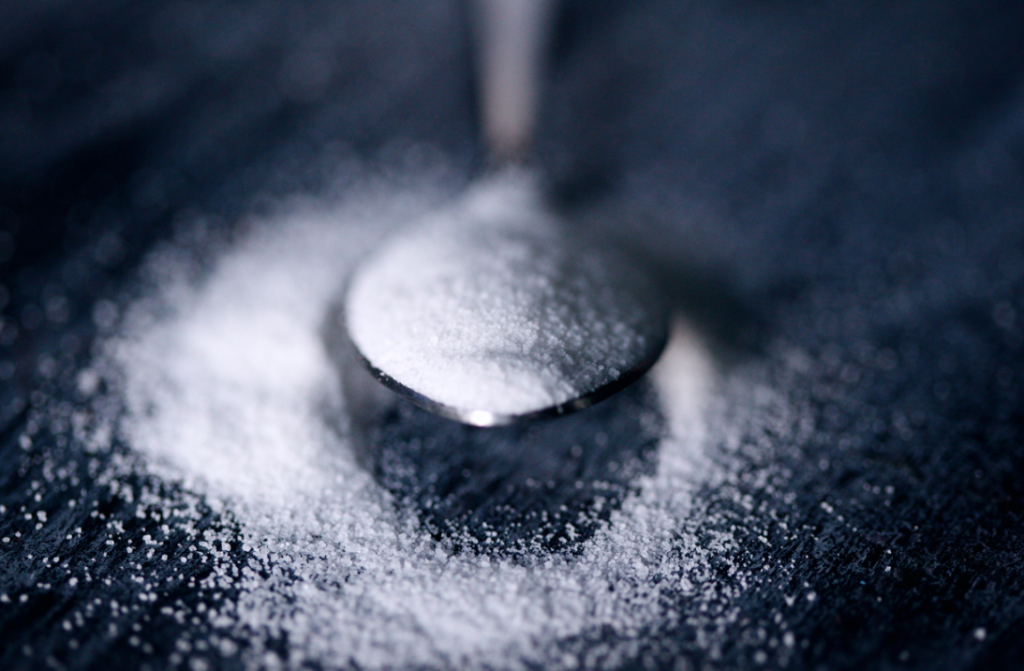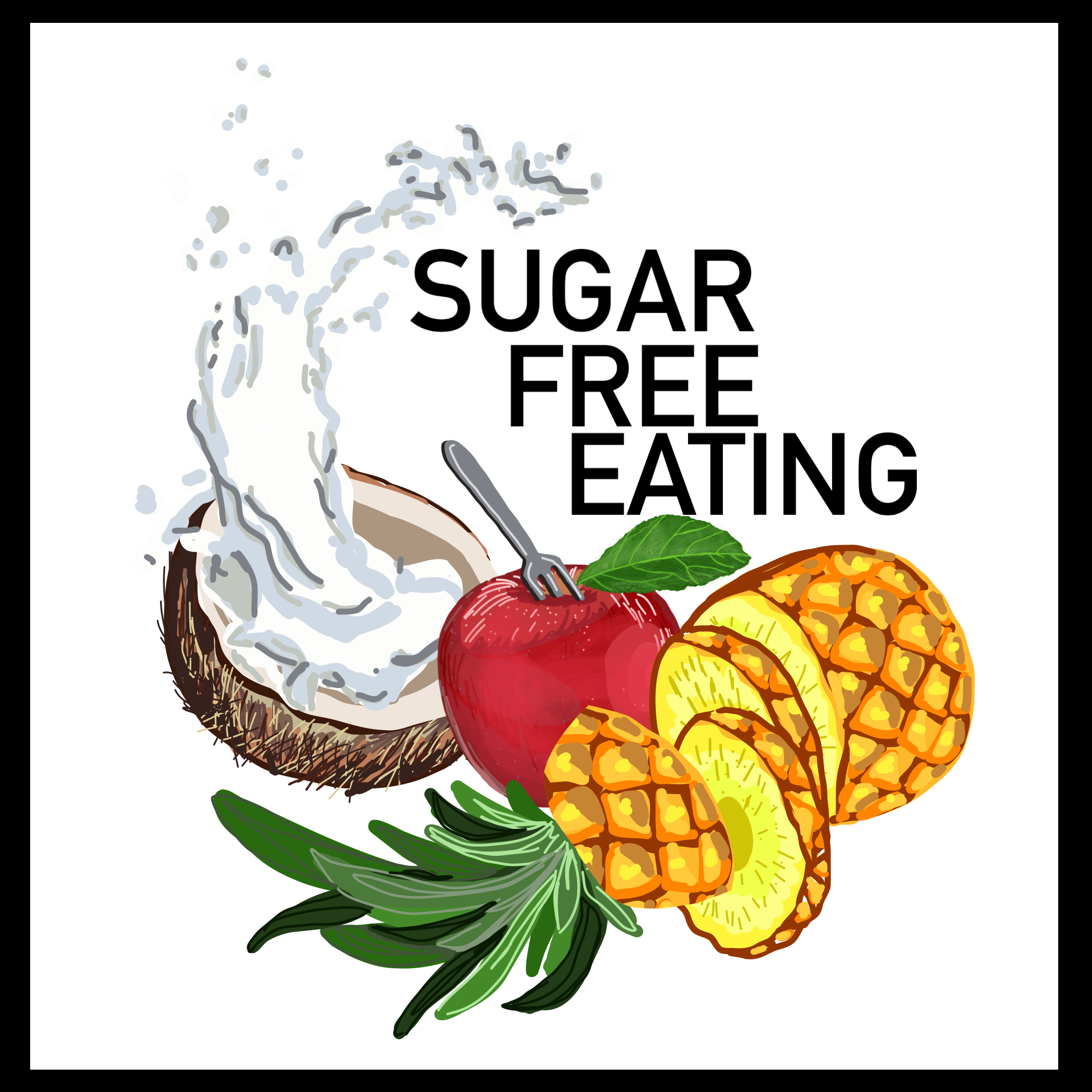
You are probably already aware that sugar is bad for you.
But did you know that those replacement sugars you are seeing everywhere (and may already be adopting into your lifestyle) are bad for you too?
They offer everything you thought you wanted: no calories, vibrantly sweet smoothness to fulfill your wildest dessert dreams, low or no glycemic index score, familiarity in powdered or granular form for baking, and practically no effect on the body, right? While these sugar replacements seem to tick all the boxes, there is a sinister truth behind the “healthy” façade. They are not healthy at all. In fact, there are major scientific health discoveries that make these alternatives as bad as sugar, and even worse in many cases.
If it isn’t in fruit form or straight from the source, we don’t recommend using it.
Let’s dive into the truth about these seemingly “safe” but oh-so-sinister alternative sweeteners.
E R Y T H R I T O L
The sweetheart of sweeteners, erythritol is the predominant sugar alcohol accepted amongst buyers in the sweetener markets of today alongside Splenda (we’ll get to that one too). It is used in other alternative sweeteners too labeled as different products entirely, like Monkfruit and Stevia Leaf. You will find Erythritol in powdered and granulated form in products like Swerve, Truvia, Monkfruit in the Raw, Good Good products, Lakanto Monkfruit products, and so many more.
Found in Health Food Stores and grocery stores alike, it is in chocolates, icecreams, cakes, jams and jellies, box mixes, cookies, cereals, candies, granola, and a hundred other products.
So, you’re wondering, what’s so bad about it? You may even feel ready to defend it before we’ve even begun. You are ready to tell me that small amounts even occur regularly in fruits and vegetables. However, when using erythritol as a sweetener, the levels are more than 1,000 fold greater than those levels found in natural foods. On this same wavelength of understanding, it is important to know that this sugar is not the same as “all natural”, “raw”, and certainly couldn’t be in the same category as a fruit or vegetable but rather is the result of scientific experiments in a lab.
In a study recently conducted by a National Institute of Health Research Team, led by Dr. Stanley Hazen at the Cleveland Clinic, thousands of blood samples, collected between 2004 and 2018 in the United States and Europe, were analyzed to find a relationship between substances that made their way into the blood stream and cardiovascular risks. The substance that played the majority role in causing problems and elevating risk? Erythritol. They found that erythritol was provoking “enhanced thrombosis” or clotting in the blood. That blood clotting, in turn, increases the risk of heart attack or stroke. These findings affect everyone, but especially those already trying to watch their sugar intake for health conditions, such as those people with diabetes or coronary disease. These groups are several times more vulnerable to see fatal results. In all demographic populations tested, the researchers concluded that higher levels of erythritol were connected to a massive risk of heart attack, stroke or death within three years of consumption.
A S P A R T A M E
This sweetener has been around since 1974, and its risks have been mentioned many times, so this may be one you have already heard about. Growing evidence suggests that its effects cannot be ignored, though it is still widely used.
The World Health Organization recently (2023) declared the artificial chemical sweetener to be a carcinogen, which is linked to cancer.
Aspartame is found in diet sodas, gum, candies, sugar-free jello and pudding mixes, icecreams, yogurts, breakfast cereals and even toothpaste and medicines.
Although the amount needed to be truly fatal is under review, the evidence is clear: DO NOT EAT this sweet stuff.
C O R N S Y R U P
You knew this one would make the list. But let’s talk a little about why this sweetener is so harmful. Whether its just corn syrup or high fructose corn syrup, STAY AWAY.
The process required to convert corn to a syrup renders it unnatural and processed to a point that it delivers little to no nutritional value. The syrup contains a high amount of fructose and glucose which promote visceral fat accumulation. Visceral fat is the fat that surrounds your organs and is the most harmful kind of body fat. It’s linked to health issues like diabetes and heart disease.
Pick up a bottle of Sugar Free Creamer, like I did the other day, and find this deceiving ingredient. Or maybe browse the ingredients of your kids’ favorite fruit snacks. Bam! Candies, Icecreams, Pies and Cakes- it’s there too! Truth is, it’s in many products, and even if it says, “Sugar Free”, don’t be gullible. Read the ingredients and make sure it is not rearing its ugly head.
A G A V E
Agave is another sweetener found from natural sources, but it doesn’t prove to be a valid improvement to sugar.
Agave is a succulent plant that grows in the arid and semi-arid regions of the world. Its properties are used in tequila and were later discovered to be a tasty sweetener. So what is the problem with agave, you may ask? It’s “natural” after all, you reason.
Let’s begin with the fructose it contains. The fructose of agave is extremely high, higher even than high fructose corn syrup. Low levels of fructose don’t raise blood sugar or trigger insulin release initially, but the excess fructose found in agave causes fat buildup which leads to insulin resistance in the liver and non-alcoholic fatty liver disease. It also leads to Metabolic syndrome and can complicate diabetes or even potentially lead to it.
It also goes through such a transformation from plant to syrup that the level of processing needed to transfigure it makes it the furthest thing to natural and strips it of its potential health benefits.
M A L T I T O L
Maltitol is another sugar alcohol like Erythritol. Maltitol is about 90% as sweet as sugar but about half the calories. However, it is not considered a substitute without risks.
Studies have shown that when eating Maltitol, study participants experienced gastrointestinal dangers and symptoms. Such symptoms included diarrhea, abdominal pain, bloating, gas, and overall discomfort. Irritable Bowel Syndrome is developed and worsened with frequent consumption of Maltitol making it a significant danger to the human population.
Maltitol is in many sugar free pastries, cakes, icecream, baked goods, chocolate and gum.
X Y L I T O L
Similar to Maltitol, Xylitol is a sugar alcohol that can also cause gastrointestinal issues. But in addition to these risks, Xylitol in high dosages may even be linked to the growth of tumors. Yikes!
A L L U L O S E
This could be considered one of the better options for sugar replacement, given the studies we have. However, it would be unwise to trust it completely since health officials state that more research is needed. There are indeed still risks that cannot be ignored, and more studies need to be conducted to discover long term effects of the sweetener.
Allulose is D-psicose found in wheat, figs, and molasses. It is 70% as sweet as sugar. It is a monosaccharide, like glucose and fructose.
While there are limited studies to indicate risks, we do know some potential health hazards associated with the use of Allulose. In fact, while it is approved by the American FDA, it is actually illegal and deemed unsafe in Europe.
In an American test tube study using cells of mice, allulose was linked to muscle cell injury under simulated exercise conditions. In humans, it is linked to digestive issues. Europe classifies Allulose as a carcinogen, which is linked to cancer.
So much better out there!
The earth produces so many naturally abundant options to use instead! You may believe that fruit, dates, figs, or real maple syrup are not going to provide the same experience as you have had with sugar. In some ways, you are correct, and thank goodness, because experiencing the negative side effects of sugar and sugar alternatives is damaging to health and even fatal in some cases! But you may be surprised to find that you can still experience the joy of eating when you cook and bake with natural untainted fruits and plant products! Follow along with us as we show you just how satisfying an experience it is eating sugar free!
